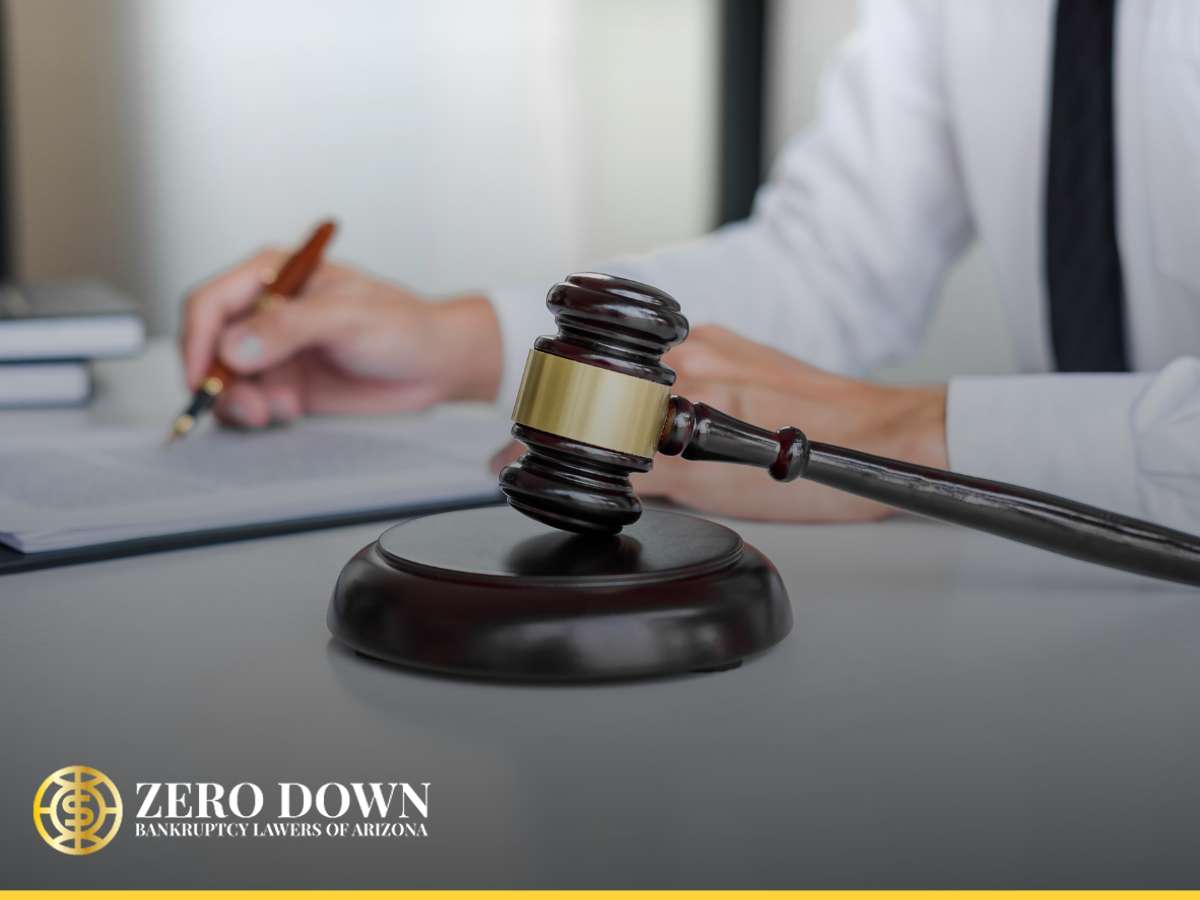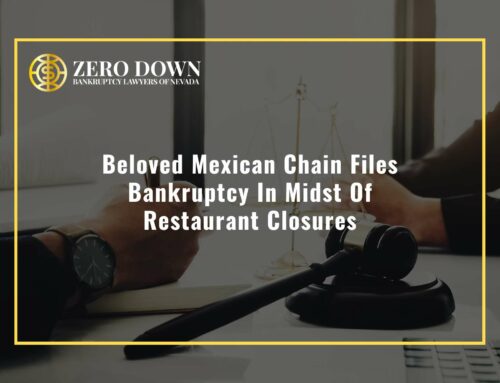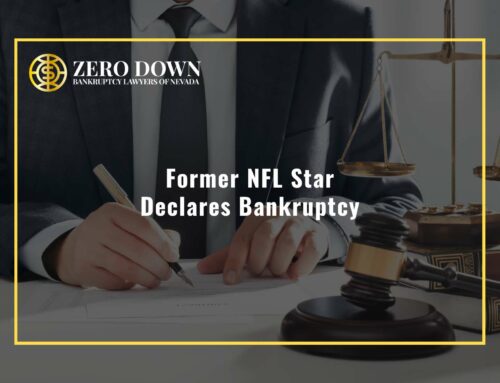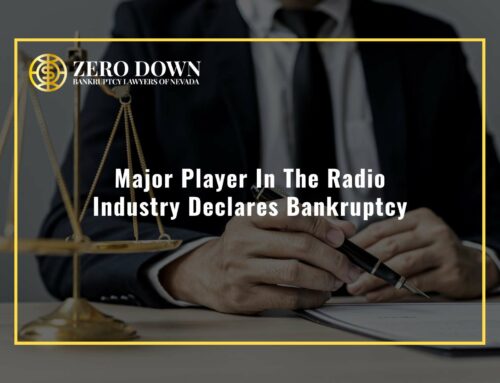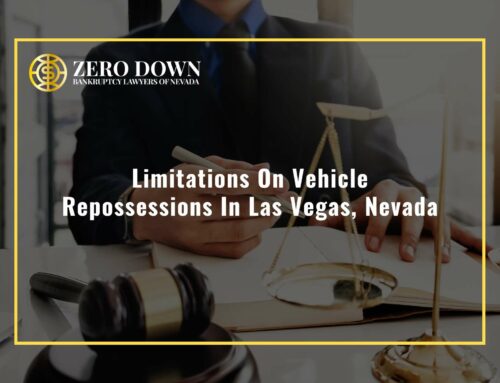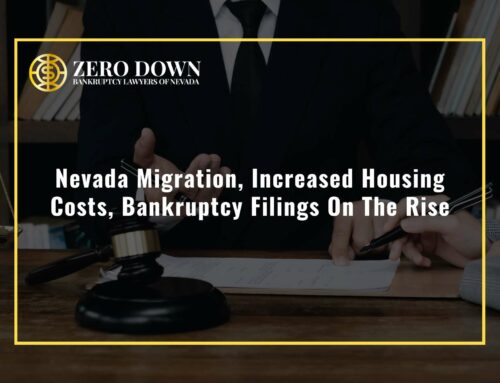What Happens To Certificates Of Deposit In Bankruptcy In Nevada
Having a diverse investment portfolio can be a favorable strategy to minimize risk. One of the least risky forms of investment available is a certificate of deposit. Also called a CD, this type of savings account returns at a set interest rate that is typically higher than interest rates offered by standard savings accounts from banks and credit unions. Because interest rates are high, CDs are becoming a more attractive investment options when other opportunities are fraught with risk. When a financial institution is backed by the FDIC, the customer knows that they will receive the return they were promised if they wait until the set date for their CD to mature.
A CD account will always have a term. It could be just a few months, or even last several years. The customer is expected to avoid withdrawing from the account until the term is complete. At this point, the account is considered to have matured. When a CD has matured, the customer can withdraw from the account without incurring a fee or penalty. The fee, known as an Early Withdrawal Penalty, or EWP, will usually depend on how long the term was supposed to be and how early the customer is making a withdrawal. But when the customer is confident that they can go without the funds in a CD until the account is mature, a CD can be a safe and secure way to collect interest rather than letting funds sit stagnant in a standard bank account.
Certificates of deposit can be a useful way to save money without the risk of investments like stocks and cryptocurrency. But if the funds in a CD, minus a potential EWP, aren’t enough to get the customer out of financial trouble, filing for bankruptcy could become necessary. Chapter 7 bankruptcy clears unsecured non-priority debts to allow the debtor to move forward with a clean slate. Chapter 7 bankruptcy creates a payment plan based on the debtor’s income so they can pay off secured and priority debts. Both of them protect debtors with the automatic stay, which prevents creditors from proceeding with efforts like wage garnishments, lawsuits, and more. A CD account is just one of the several assets a debtor will want to protect throughout the bankruptcy process. For more information, as well as information on our Zero Down payment plan options for bankruptcy, call 702-842-0700 for your free consultation today.
Can I Protect My CD If I Declare Bankruptcy In Nevada?
A bankruptcy debtor will want to make sure that most, if not all, of their assets are protected by exemptions before filing a bankruptcy petition in court. This is a crucial part of the bankruptcy process, because without the proper exemptions applied, a trustee can take a non-exempt asset. The asset will typically be sold at an auction, and most of the proceeds will be used to pay off debts but the trustee will get to keep a portion as well. This gives the trustee great financial incentive to discover non-exempt assets. So, for a potential bankruptcy debtor with funds in certificate of deposit accounts, this brings about the question if these accounts are safe in bankruptcy.
Nevada’s bankruptcy exemptions don’t have an option that is specifically designated for a certificate of deposit account. But that doesn’t necessarily leave a bankruptcy debtor with funds in a CD completely out of luck. Nevada is one of the states that offers its bankruptcy debtors a wildcard exemption. A wildcard exemption is a bankruptcy exemption that can be used on any asset or personal possession. The wildcard exemption can’t be used to protect real property, or real estate, in Nevada. Do you have more questions about the wildcard exemption or what will happen to your investment accounts if you declare bankruptcy in Reno or Henderson? Don’t hesitate to schedule your free consultation with our Zero Down bankruptcy team by calling 702-842-0700.
What Are The Other Bankruptcy Exemptions In Nevada?
Nevada’s bankruptcy exemptions must be applied accurately to ensure that the debtor’s assets are protected throughout the course of their case. Exemptions apply to the market value of an asset and how much equity the debtor has in that asset. If you have any questions or concerns about applying Nevada’s bankruptcy exemptions in your Reno or Henderson bankruptcy case, call 702-842-0700 to schedule your free consultation with our Zero Down Bankruptcy Lawyers.
Homestead exemption- This is the exemption meant to protect a debtor’s full-time residence. It should not be used to protect a vacation home or a rental property. A bankruptcy debtor must record a homestead declaration before using this exemption in bankruptcy.
Motor vehicle exemption- This is the exemption meant to protect a bankruptcy debtor’s car, truck, SUV, or other vehicle. It needs to be used on a passenger vehicle and not a recreational vehicle or a watercraft. For most debtors in Nevada, the exemption will be based on how much equity the debtor has in the vehicle and its market value. However, if the debtor has a physical disability, there is no limit for the motor vehicle exemption. This is to protect specialized equipment and any other installations made to a vehicle to accommodate the debtor’s physical disability.
Household goods and furnishings exemption- This bankruptcy exemption can be used to protect a number of items around the home. From appliances to furniture and household electronic devices, this exemption keeps creditors away from a wide variety of personal possessions.
Engagement rings and wedding bands exemption- This exemption provides modest protection of a bankruptcy debtor’s engagement ring and/or wedding band.
One gun and uniforms exemption- This exemption protects one firearm without a set value. It also protects any uniforms that the debtor is required to have for their employment.
Personal injury awards exemption- Sometimes, a bankruptcy debtor will also have a pending personal injury claim. If the debtor doesn’t apply an exemption to this claim, the trustee can seize them even after the bankruptcy case has been completed.
Tools of the trade exemption- This is actually a few separate exemptions that all relate to items used in the course of the debtor’s employment. Farm trucks, equipment, and other supplies have their own exemption. So does mining equipment, including a miner’s residence. Military members can use a separate exemption to protect arms, uniforms, and other accouterments that they are required to keep. There is also a tools of the trade personal library exemption that can be used to protect the debtor’s books, equipment, and other inventory.
File For Bankruptcy In Henderson & Reno With Zero Dollars Down
Do you struggle with debts but still have assets, such as CDs, that you want to protect? Filing for bankruptcy doesn’t require residents of Nevada to give up everything they own. A skilled bankruptcy attorney can help you accurately apply exemptions so you derive as much benefit from your bankruptcy filing as possible. With the right representation, bankruptcy can actually become a positive experience. Regain control of your finances and keep creditors away from your assets. To get started today with your free consultation, call 702-842-0700 or contact us at Zero Down Bankruptcy Lawyers.

Zero Down Bankruptcy Lawyers
Phone: (702) 842-0700
Email: info@vegaszerodownbankruptcy.com
Las Vegas Office
5552 Ashley Creek St
Las Vegas, NV 89135
North Las Vegas Office
7251 W Lake Mead Blvd
Las Vegas, NV 89128
Henderson
1489 W Warm Springs Rd #110
Henderson, NV 89014

